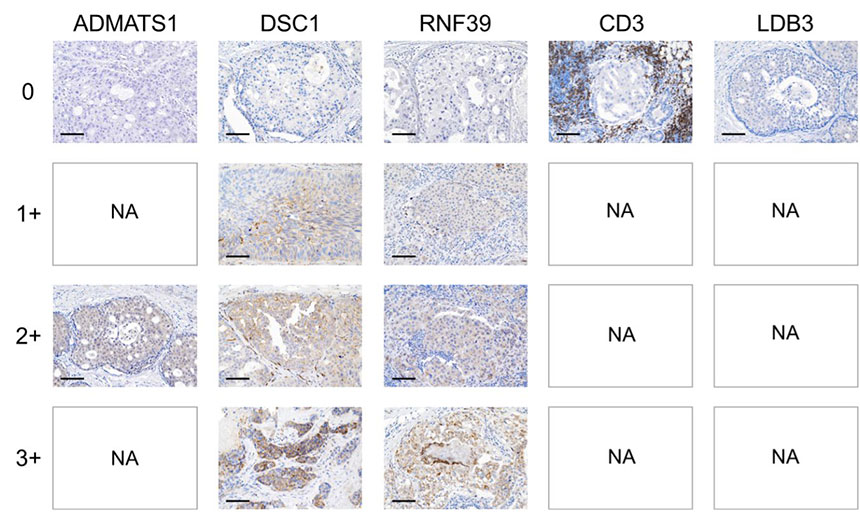Anti-RNF39 polyclonal antibody in salivary duct carcinoma research
Article: "Identification of novel prognostic and predictive biomarkers in salivary duct carcinoma via comprehensive molecular profiling"

Immunohistochemistry of prognostic markers. Immunohistochemistry of ADAMTS1, DSC1, RNF39, CD3 and LDB3 was performed to evaluate protein expression in tumor cells
Identification of novel prognostic and predictive biomarkers in salivary duct carcinoma via comprehensive molecular profiling.
Salivary duct carcinoma (SDC) is an aggressive malignancy of the major salivary glands, such as the parotid gland, accounting for > 4% of all salivary gland carcinomas.
The current treatments for SDC include complete surgical resection of the primary sites followed by adjuvant chemotherapy/radiotherapy. However, recurrence and distant metastasis frequently occur, resulting in poor prognoses.
Thus, reliable prognostic biomarkers are desperately needed to select patients at high risk for recurrence.
✅ A study by Kohsaka S. et al. (2022) defines a four-gene set (ADAMTS1, DSC1, RNF39, and IGLL5) related to multiple processes, such as inflammation and cell adhesion, for predicting aggressive SDC. This gene set may be valuable as predictive biomarkers to stratify patients who may benefit from additional systemic or radiation therapies.
Read full article here.
👉 Find out more about our anti-RNF39 polyclonal antibody which was used in the study.
